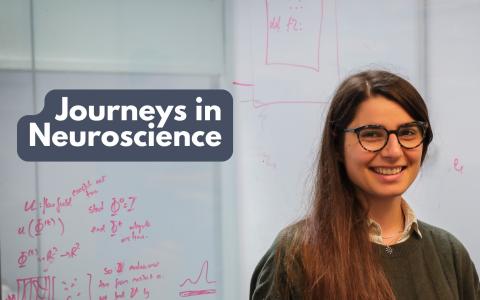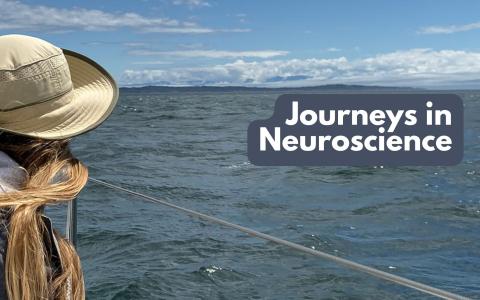
International Day of Women and Girls in Science
We asked staff at the Sainsbury Wellcome Centre and the Gatsby Computational Neuroscience Unit about their careers, and what it means to be a woman in science.
Ann Duan, Group Leader at the Sainsbury Wellcome Centre
My long-term scientific goal centres around extracting general principles of neural computation that give rise to cognition. My lab at SWC combines theory-motivated behavioural paradigms with modern experimental and analytical tools to conduct large-scale, cellular-resolution investigations of neural circuit mechanisms for flexible decision-making. In particular, I aim to understand how decision-making is modulated by internal and environmental variables, such as risk preference and competitive/cooperative social interaction.
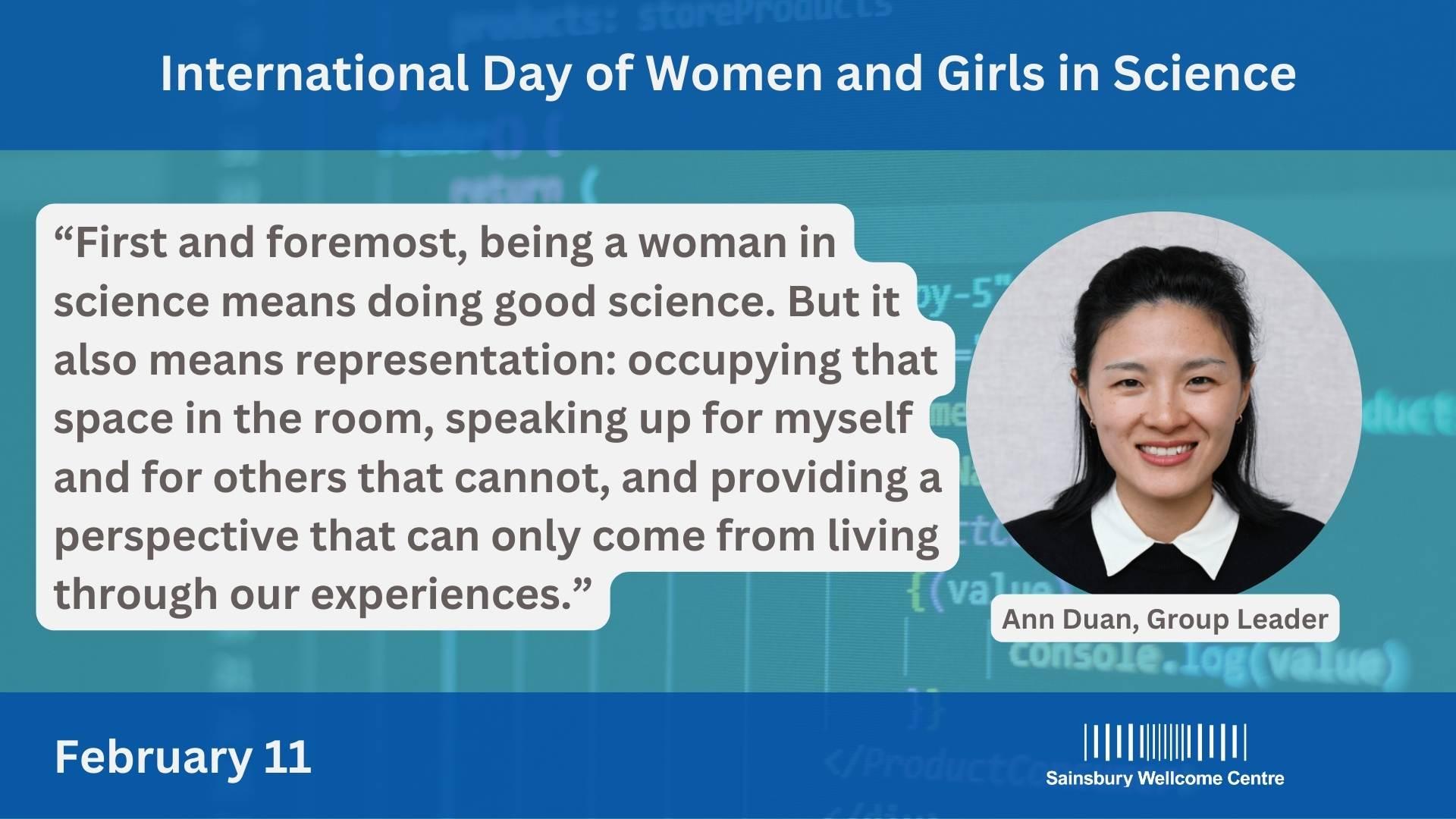
Sometimes I have imposter syndrome about myself and my work, am I here because I am a woman? Of course, the answer to that question (it can be yes, or it can be I am here despite my experiences) is not constructive in any way. Instead, I focus on what I can do now, as a scientist, a mentor, and a member of our community. There are so many imperfections in various aspects of my work and life, but there is also so much joy, support, and once in a while, growth.
Surround yourself with supportive and positive peers and mentors. Work really hard towards your goals. Whenever possible, be that supportive peer and mentor to others.
Ella Svahn, PhD student, MacAskill lab & Akrami lab
During my undergraduate degree at the University of Edinburgh, I did lots of research internships at all levels of biomedicine, which ultimately led me to work as a lab tech and then apply for a UCL PhD in systems neuroscience, studying neuromodulation and decision-making. Now, I am finishing my PhD and applying for post-doc roles: luckily still as passionate about science as I was in my undergraduate!
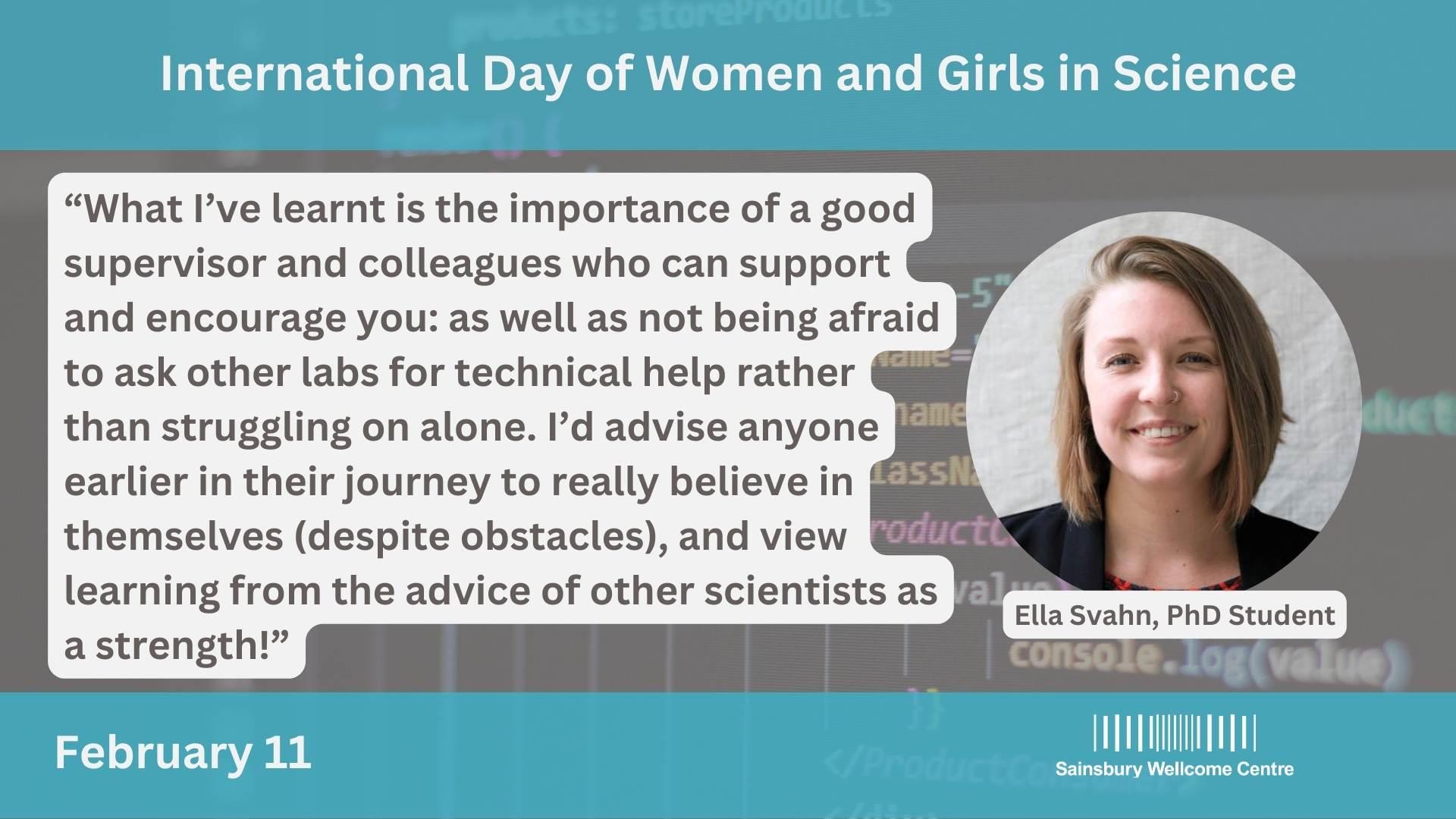
Science can require a lot of patience, resilience and belief in oneself when experiments are hard or not working. This may affect women more, since from experience we often lack the confidence we should have, given our work!
Clementine Domine, PhD Student, Saxe and Barry Labs, Gatsby Computational Neuroscience Unit
My work sits at the intersection of theoretical neuroscience and theoretical machine learning. Previously, I completed a degree in Theoretical Physics at the University of Manchester, with an exchange at the University of California, Los Angeles. At a high level, my research aims to understand how the brain learns and forms representations to perform complex tasks, such as continual, curriculum, and reversal learning, as well as the acquisition of structured knowledge.
I develop mathematical frameworks grounded in deep learning theory to describe complex and adaptive learning mechanisms, addressing questions from both machine learning and cognitive science/neuroscience perspectives. Beyond my research, I am deeply involved in the academic community. I co-organize the UniReps: Unifying Representations in Neural Models workshop at NeurIPS, an event dedicated to fostering collaboration and dialogue between researchers working to unify our understanding of representations in biological and artificial neural networks.
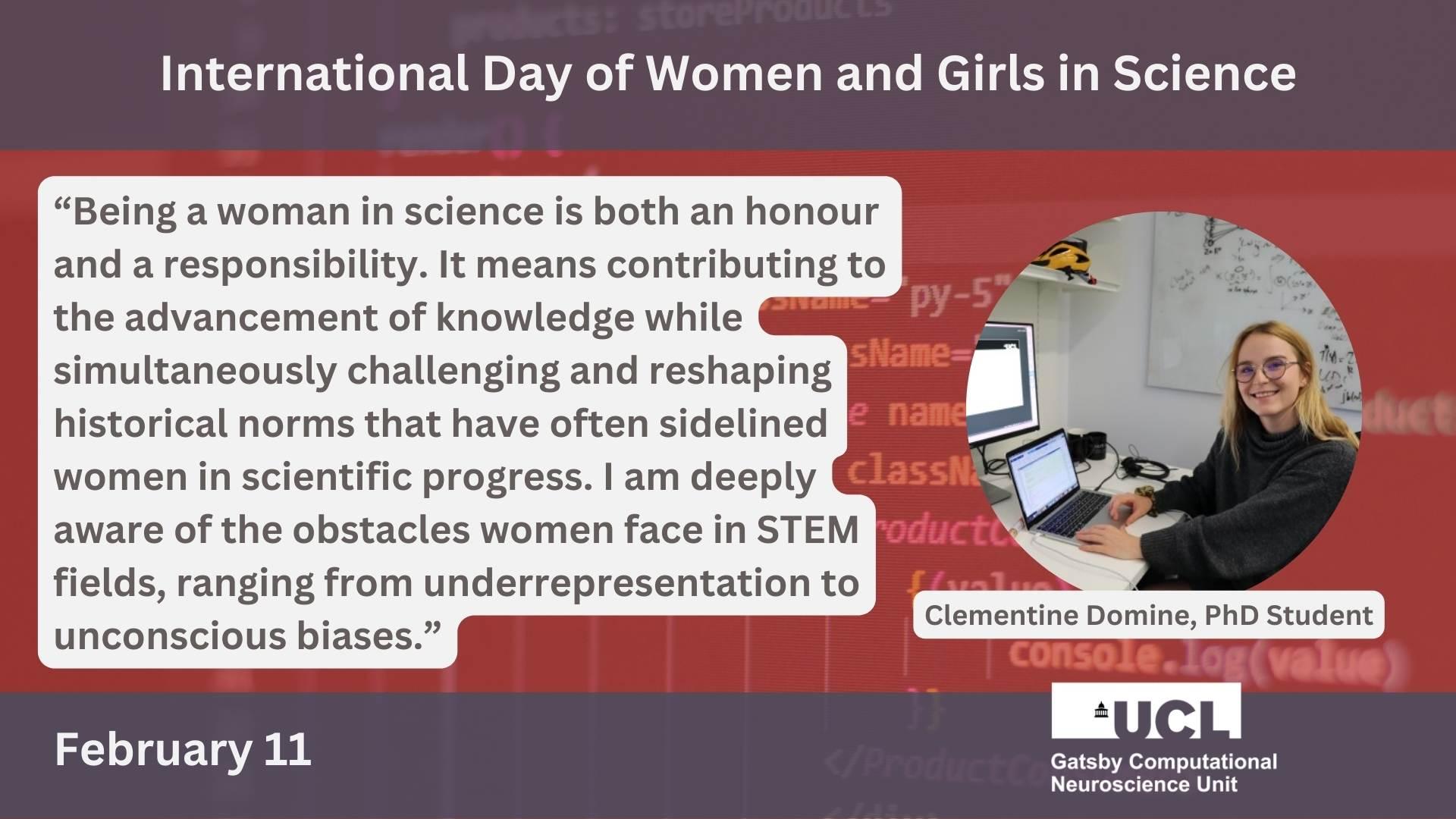
I am deeply aware of the obstacles women face in STEM fields, ranging from underrepresentation to unconscious biases, which I have encountered firsthand.
For me, being a woman in science is about finding my voice, building confidence in my expertise, and actively fostering environments where future generations of women and girls feel empowered to follow their passions. This commitment extends to championing Equity, Diversity, and Inclusion (EDI) initiatives to create lasting change. In today’s climate, where EDI efforts are increasingly facing setbacks, it has become more crucial than ever to address these challenges, raise awareness and advocating for progress.
Lillianne Teachen, Senior Research Technician, Akrami and Erlich labs
The labs I work with have semi-automatic behaviour systems, and my day-to-day consists of behavioural training of mice and rats, collecting data for experimenters within the building, fixing and calibrating behavioural rigs, tracking animals' health, and managing schedules (for both the animals and people!). One of the things I love most about my job is taking care of the animals. I work as the chair of the SWC/Gatsby 3Rs Group and am a member of the AWERB (Animal Welfare Ethical Review Body), where we work towards making sure our standard of care for our animals, as well as our science, is the best it can be. I have worked in neuroscience for 9 years now, and I love sharing my skills and knowledge to help others and to promote the best environment for every person and animal I work with. I also manage some amazing women, and I hope to be a trustworthy and fair leader for them.
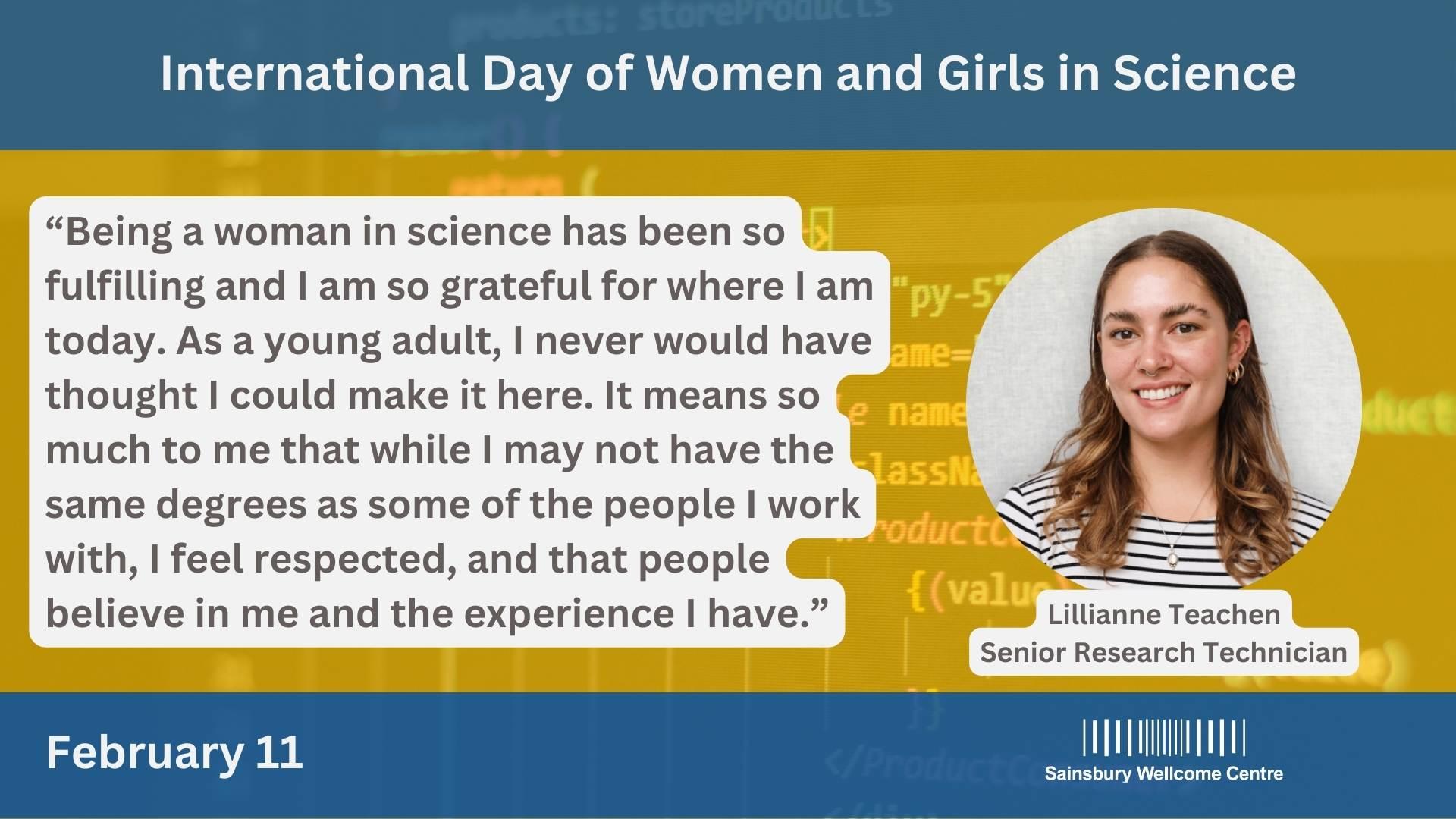
My manager, Athena Akrami (another amazing woman in science), has always been very supportive, and it is so nice to have such an inspiring role model and cheerleader. I am currently enrolled in a Women In Leadership course at UCL, and it has made me truly proud of the SWC for being such a fantastic place for women to excel. I have worked very hard, but also feel quite lucky to be around so many women from different backgrounds.
Sandra Reinert, Postdoctoral researcher in the Mrsic-Flogel and Behrens labs
To study cognition and how brain circuits support it, my job is to observe neurons in mice that are doing a task and to test hypotheses about what these neurons are doing. This involves engineering work (building experimental setups, wiring components, aligning microscopes), animal work (surgeries, training mice), data science (programming analyses) and communication (writing papers, giving talks). And since I’ve started my postdoc, I am more and more involved in mentoring and project management. This diversity in day-to-day work is really what I enjoy most about being a researcher in academic neuroscience.
As a woman, I am tremendously grateful to live now rather than at any time in the past centuries. As much as this should be completely natural, choosing to work in science, a researcher among equals, it feels like a privilege. I love the job I have and am happy I chose to be part of a team in which I feel welcome, respected and taken seriously.
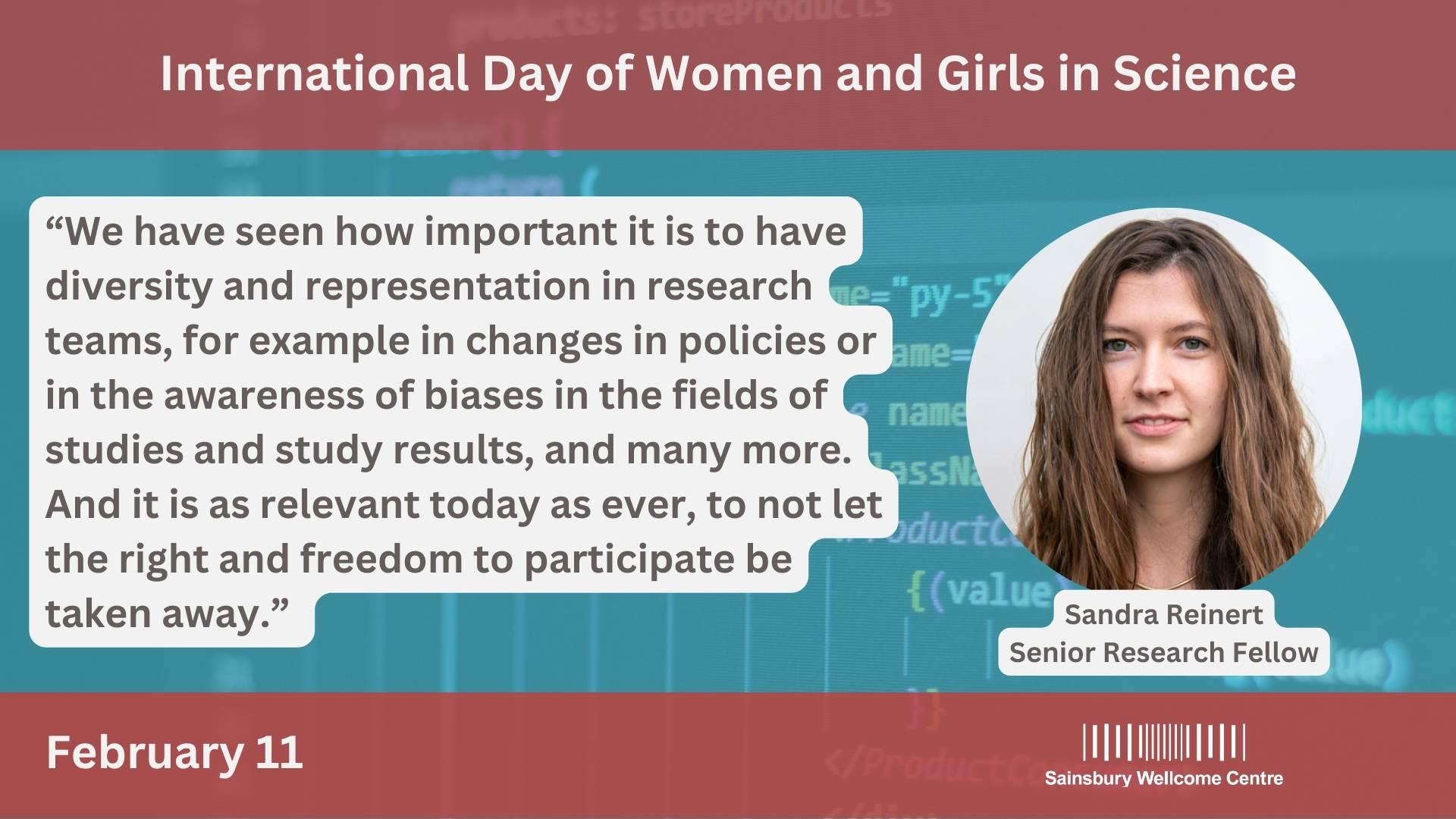
For me, this means I feel a responsibility to be a part of change (hiring, mentoring, supporting early education, communicating) that creates environments in which women feel at home in science without questioning their position or role.
Don’t let anyone (including your own fears) prevent you from trying what you think is fun! A failed attempt is worth so much more than the failure to try in the first place.
I got inspired to study neuroscience pretty much because of a sci-fi book I read as a teenager. Since then, I knew where I wanted to get professionally, I dreamt of being a researcher. But when deciding what university course to enroll to prepare me for that, what I really wanted was to study mathematics or computer science. But I did not dare. I did not think I was skilled/smart/geeky enough. So I studied biology. In the end, I got where I wanted to be, a neuroscientist, but I still regret denying myself this opportunity for nothing but insecurity. Don’t do that :)
Elena Ghirardello, Standards and Licencing Manager
My career has been a journey through many different and exciting fields of science. Having graduated with an MSc in Palaeobiology (because I never outgrew my inner child who was fascinated by dinosaurs), I leveraged my knowledge of pterodactyl fossils and tyrannosaur biomechanics to secure a research technician position in a lab studying bone, arthritis, and endocrine disorders.
Within this role I was introduced to laboratory animal research, and gained skills and passion for this field of work that would irrevocably shape my career to come. I have since worked as a senior research technician within a department studying neurodegenerative disorders, and within my current role I now oversee the licensing and governance programmes concerning animal care and use at the SWC.

Utilise everything at your disposal to gain the translatable experience that will propel you to where you want to be.
Margarida Pexirra, PhD Student, Erlich lab
There was a past life where I was an Engineer, but about seven years ago, I unexpectedly found myself venturing into systems neuroscience. I am currently a 4th year (yikes!) PhD student in Jeff Erlich’s lab, where we are studying how animals encode and retrieve value information to guide contextual economic decisions. My work ranges from understanding intricate high-dimensional neural data to cleaning rat poop.
What does being a woman in science mean to you?
That’s a big question that deserves to be dissected in more than just one line. Being part of an underrepresented group in science, or any field, means that we are well positioned to contribute to change. Visibility matters, and being here helps us push things forward, by making space for different perspectives and proving that we belong.
I’ll leave you with my one-line answer though: It’s not ideal… yet. :)

What advice would you give to the next generation of women and girls in science?
First, I am so sorry to tell you this but… stop being so apologetic! ;)
Second, don’t take yourself too seriously - learn to make fun of yourself (see advice number one until you get the joke).
Most importantly, lean on those who are navigating the same career stage as you, especially fellow women in your cohort. The tough days won’t feel as tough and wins will be extra sweet because you’ll have people who truly get it cheering you on and rooting for you (even when you are not!). Female friendships are key, and I firmly believe they’ll help carry us through - I’m really counting on this one but I am nowhere near to graduating, so fingers crossed!
